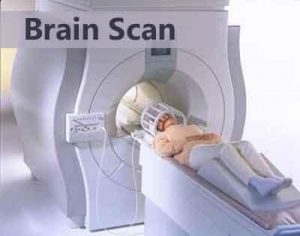- Home
- Editorial
- News
- Practice Guidelines
- Anesthesiology Guidelines
- Cancer Guidelines
- Cardiac Sciences Guidelines
- Critical Care Guidelines
- Dentistry Guidelines
- Dermatology Guidelines
- Diabetes and Endo Guidelines
- Diagnostics Guidelines
- ENT Guidelines
- Featured Practice Guidelines
- Gastroenterology Guidelines
- Geriatrics Guidelines
- Medicine Guidelines
- Nephrology Guidelines
- Neurosciences Guidelines
- Obs and Gynae Guidelines
- Ophthalmology Guidelines
- Orthopaedics Guidelines
- Paediatrics Guidelines
- Psychiatry Guidelines
- Pulmonology Guidelines
- Radiology Guidelines
- Surgery Guidelines
- Urology Guidelines
fMRI brain scans can spot lies better than polygraph test

New York : Scanning people's brains with functional magnetic resonance imaging, or fMRI, is significantly more effective way to spot lies than a traditional polygraph test, a new research has found.
The findings suggest that when it comes to lying, our brains are much more likely to give us away than sweaty palms or spikes in heart rate.
Polygraph, the only physiological lie detector in worldwide use since it was introduced in its present form more than 50 years ago, monitors individuals' electrical skin conductivity, heart rate, and respiration during a series of questions.
Polygraph is based on the assumption that incidents of lying are marked by upward or downward spikes in these measurements.
The study, published in the Journal of Clinical Psychiatry, found that neuroscience experts without prior experience in lie detection, using fMRI data, were 24 per cent more likely to detect deception than professional polygraph examiners reviewing polygraph recordings.
It has been demonstrated that when someone is lying, areas of the brain linked to decision-making are activated, which lights up on an fMRI scan for experts to see.
"Polygraph measures reflect complex activity of the peripheral nervous system that is reduced to only a few parameters, while fMRI is looking at thousands of brain clusters with higher resolution in both space and time," said the study's lead author Daniel Langleben, Professor of Psychiatry at Perelman School of Medicine, University of Pennsylvania in the US.
"While neither type of activity is unique to lying, we expected brain activity to be a more specific marker, and this is what I believe we found," Langleben noted.
To compare the two technologies, 28 participants were given the so-called "Concealed Information Test" (CIT).
CIT is designed to determine whether a person has specific knowledge by asking carefully constructed questions, some of which have known answers, and looking for responses that are accompanied by spikes in physiological activity.
In the controlled comparison of the two technologies, the researchers found that fMRI spotted more lies.
The approach adds scientific data to the long-standing debate about this technology and builds the case for more studies investigating its potential real-life applications, such as evidence in the criminal legal proceedings.
"While the jury remains out on whether fMRI will ever become a forensic tool, these data certainly justify further investigation of its potential," Langleben added.

Disclaimer: This site is primarily intended for healthcare professionals. Any content/information on this website does not replace the advice of medical and/or health professionals and should not be construed as medical/diagnostic advice/endorsement or prescription. Use of this site is subject to our terms of use, privacy policy, advertisement policy. © 2020 Minerva Medical Treatment Pvt Ltd